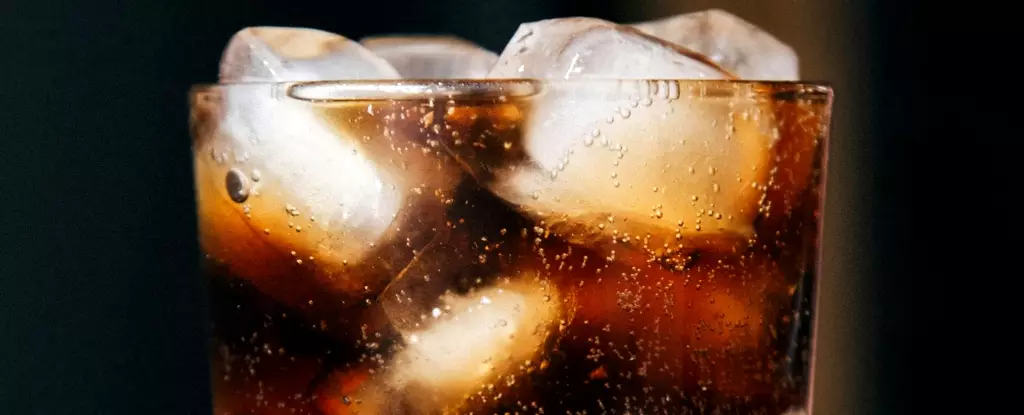In today’s world, sugary beverages like sodas and energy drinks have become ubiquitous, captivating consumers with their irresistible sweetness. This hyper-palatable quality is intricately designed to trigger pleasure receptors in the brain, delivering immediate gratification with every sip. However, what seems like a delightful indulgence often conceals a wealth of health hazards. Though these drinks provide a momentary burst of energy and enjoyment, their long-term impact on our health is alarming, with little to no nutritional benefits to counterbalance their appeal.
Recent research spearheaded by experts at Tufts University has revealed that approximately 1.2 million cases of cardiovascular diseases and 2.2 million new cases of type 2 diabetes may be linked directly to the consumption of sugar-sweetened beverages (SSBs) every year. This study underscores a troubling trend: while certain developed nations have started to witness a decline in sugary drink consumption, SSBs still pose a significant public health threat in many developing countries. This revelation should serve as a wake-up call for public health advocates and policymakers alike, as these alarming statistics highlight both an immediate concern and a growing epidemic that demands urgent intervention.
Challenges in Developing Nations
The chief researcher, Dariush Mozaffarian, emphasizes the plight of low- and middle-income countries, where these beverages are heavily marketed and readily available. While consumers in wealthier nations may have access to health education and resources to combat the consequences of such consumption, those in developing regions often lack the necessary tools to address the health repercussions associated with sugar-laden drinks. The stark statistics from countries like Mexico and Colombia illustrate an urgent crisis: in Mexico, nearly one-third of new diabetes cases can be traced back to sugary drinks, while Colombia sees this percentage nearly doubled. As governments in these regions grapple with healthcare challenges, the focus must shift toward addressing diet-related issues that contribute to these preventable diseases.
In this study, SSBs are identified as any beverage that contains added sugar and offers at least 50 kilocalories per 8-ounce serving. This includes a range of products from commercial soft drinks to homemade concoctions, energizing fruit drinks, and even traditional beverages like lemonade and agua frescas. It’s important to note that this definition deliberately excludes certain drinks, such as sweetened milk and 100 percent fruit juices, yet it raises questions about the broader implications of excessive sugar consumption in various forms. Given that these beverages offer little to no nutritional value, the concern lies not only in their caloric content but also in their potential to lead to serious health complications when consumed habitually.
The Tufts researchers utilized an extensive database comprising beverage intake information from 450 surveys across 118 countries, representing nearly 2.9 million individuals. By integrating this data with rates of cardiometabolic diseases, they could effectively delineate the correlations between sugary drink consumption and adverse health outcomes. The findings are staggering: sugary beverages account for approximately 258,000 deaths caused by cardiovascular disease and around 80,000 deaths related to type 2 diabetes each year.
As Laura Lara-Castor, the study’s lead author, succinctly states, “We need urgent, evidence-based interventions.” This plea underscores the dire necessity for global outreach to educate populations about the risks associated with SSB consumption. If effective measures are not implemented swiftly, the implications for public health could be catastrophic.
Strategies for Change
To effectively combat the influence of sugary beverages on health, there needs to be a multifaceted approach that includes public education campaigns, government regulations on marketing, and potential taxation on sugary drinks to discourage consumption. Raising awareness is key; many individuals remain unaware of the hidden dangers these drinks pose to their health. Such awareness could create a cultural shift towards healthier beverage choices and encourage families to prioritize nutrition over temporary pleasure.
The findings of this extensive study serve as both a warning and a call to action. The clock is ticking, and if we do not act decisively to curb the rising tide of SSB consumption, we risk compromising the health of millions, especially in vulnerable populations around the world. It is imperative for governments, health organizations, and communities to unite in an effort to educate, regulate, and ultimately reverse the trend of sugary drink consumption. Only through concerted effort can we work towards a healthier future, unshackled from the addictive allure of sugar-laden drinks.


Leave a Reply